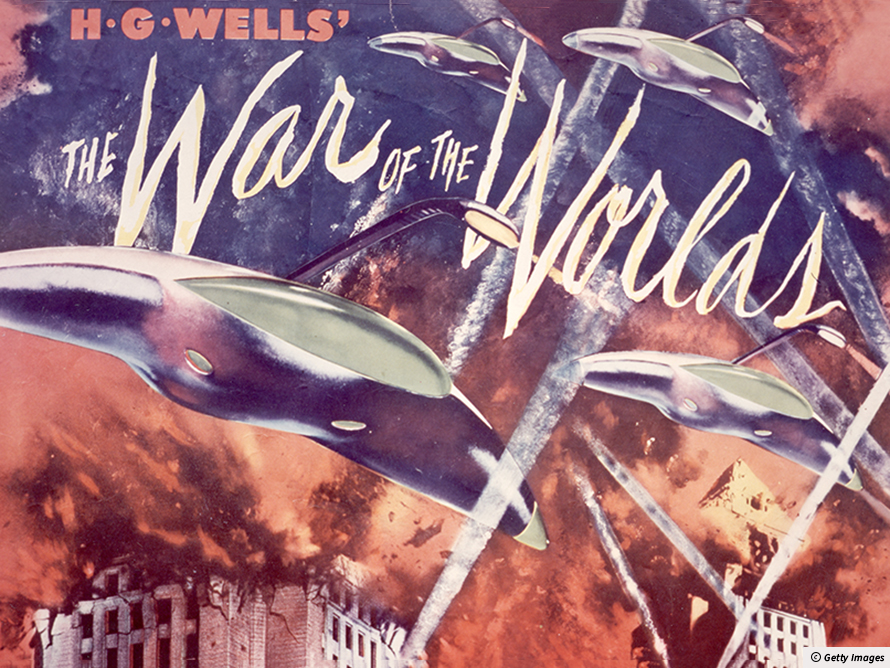At the turn of the 20th Century, a star falls to earth, and life as we know it comes to an end. HG Wells' tale of a Martian invasion of Earth is one of the most enduring classics of science fiction. From its first publication in 1897, to its multiple film adaptations, the story has never lost its appeal. Told from the point of view of an unnamed narrator trying to flee from epicentreThe central focus of something. In an earthquake, the point on the Earth's surface directly above the focus. of an alien invasion in suburbanThe residential outskirts of cities or towns. Surrey, the novel wonders what would happen if humans were to encounter a species that was vastly technologically superior. As the battle between humans and Martians intensifies, the narrator is offered glimpses of a shattered social order. He and his brother see people turning on their fellow citizens. The narrator encounters a CurateTo carefully choose, arrange, and present different items in order to get a particular effect. who is unable to face up to the reality of what is happening, and an artilleryman who has a bold but futile fantasy of resistance. Then, when it seems all hope is gone, the Martians are defeated, not by heroic human resistance but by a “putrefactiveCausing rotting.” bacteria. Written when the British Empire was at the height of its power, the story puts the ambitions of governments and nations in perspective. We are offered a glimpse of how small we are in cosmic terms.
The War of the Worlds

Glossary
Epicentre - The central focus of something. In an earthquake, the point on the Earth's surface directly above the focus.
Suburban - The residential outskirts of cities or towns.
Curate - To carefully choose, arrange, and present different items in order to get a particular effect.
Putrefactive - Causing rotting.
Cosmic - Relating to the universe or cosmos.
Victorian - The era when Queen Victoria was on the British throne, from 1837 to 1901.
Genocide - The annihilation of a people, either through killing of its members, or through the suppression of its culture.
Indigenous - Ethnic groups who are the original or earliest-known inhabitants of an area or country: for example, Native Americans in the USA.
Civil war - A war between people from the same country.
